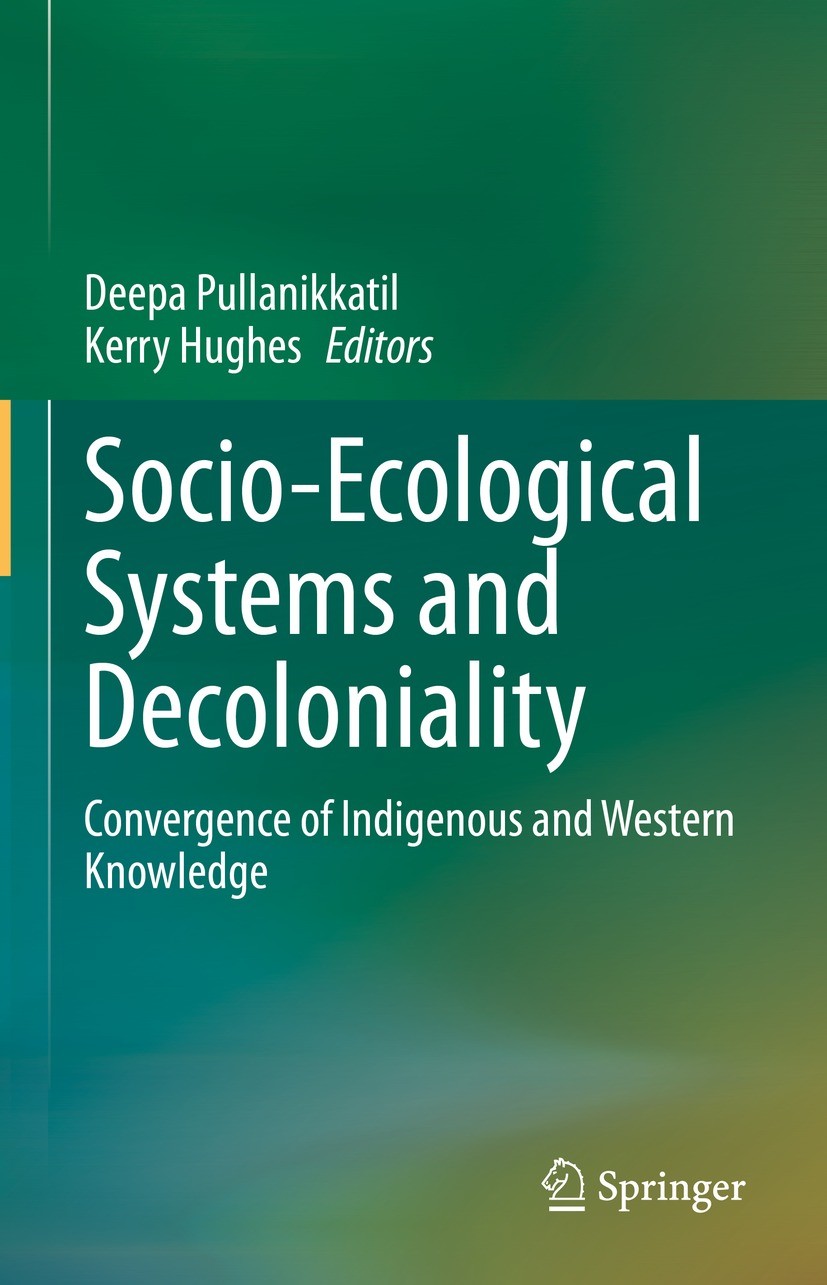

For questions about the shared read or suggestions for programming, please contact the Office of Campus Enrichment at campusenrichment@saic.edu.


“In the Western tradition there is a recognized hierarchy of beings, with, of course, the human being on top—the pinnacle of evolution, the darling of Creation—and the plants at the bottom. But in Native ways of knowing, human people are often referred to as “the younger brothers of Creation.” We say that humans have the least experience with how to live and thus the most to learn—we must look to our teachers among the other species for guidance. Their wisdom is apparent in the way that they live. They teach us by example. They’ve been on the earth far longer than we have been, and have had time to figure things out.” - Robin Wall Kimmerer, Braiding Sweetgrass, "Skywoman Falling"
 Image from: Centering Relationality: A Conceptual Model to Advance Indigenous Knowledge Organization Practices*
Image from: Centering Relationality: A Conceptual Model to Advance Indigenous Knowledge Organization Practices*
Sandra Littletree, Miranda Belarde-Lewis, and Marisa Duarte | Knowledge Organization, vol. 47 (5) | p. 410-426 | 2020
*This is a library resource that requires ARTIC login
Ways of Knowing
Assembly of First Nations | Plain Talk 9: First Nations Holistic Lifelong Learning Model | 2021
This resource reviews the eight ways of knowing: Body, Images, Logic, Music, Nature, People, the Self, and Words.
What is Indigenous Knowledge? What are Indigenous Knowledge Systems? [Podcast Episode]
Speaking Across Knowledge Systems | 24 January 2024
Please note: This podcast DOES provide transcripts.
Indigenous Research & Knowledges in North America [Research Guide]
"This guide is a starting point for exploring resources related to Indigenous knowledges, centering the viewpoints of, and scholarship by, Indigenous peoples of North America." Created by librarians at the University of Colorado Boulder.
Knowledge Symbiosis: Can Biomimicry and Indigenous Science Harmonize? with Roxanne Swentzell and Anne LaFort [Podcast Episode]
The Native Seed Pod | 26 January 2024
Please note: This podcast does NOT provide transcripts.
Climate resilience through ecocultural stewardship
Don L. Hankins | PNAS, vol. 121 (32) | 29 July, 2024
Highlighting Native American Scientists
Gladstone Institutes | Adriana Vazquez | 11 November, 2024
Meet 8 Indigenous Scientists whose work centers Indigenous knowledge and pedagogy in the field of STEM
FEMINIST | 17 November, 2023
Weaving Indigenous knowledge into the scientific method
Saima May Sidik | Nature [Career Feature] | 11 January 2022
Two Ways Of Knowing: Robin Wall Kimmerer On Scientific And Native American Views Of The Natural World
Leath Tonino | The Sun | April 2016
Weaving Traditional Ecological Knowledge into Biological Education: A Call to Action*
Robin Wall Kimmerer | BioScience vol. 52 (5) | 2002
*This resource requires ARTIC Login.
Bridging Worlds: Integrating Traditional Ecological Knowledge and Western Science with Kira Davis [Podcast Episode]
Indigenous Knowledges Project Podcast | 16 December 2024
Please note: This podcast does NOT provide transcripts.
Wild Tending Series / Ali Meders-Knight on integrating Traditional Ecological Knowledge into landscape management [Podcast Episode]
The Ground Shots Podcast | Episode 51 | 1, December 2020
Please note: This podcast does NOT provide transcripts.
Standing on the Shore with Saaban: An Anthropological Rapprochement with an Indigenous Intellectual Tradition*
Charles R. Menzies | Collaborative Anthropologies, vol. 6 (1) | p 171-199 | 2013
*This resource requires ARTIC Login.
Click the link for this episode's transcript.

Jessica Hernandez
GE195.9 .H47 2022

Margaret Kovach
E76.7 .K68 2021

Aileen Moreton-Robinson, Brendan Hokowhitu, Chris Andersen, Linda Tuhiwai-Smith, Steve Larkin (Editors)
Storage GN316 .R68 2021

Jason De Santolo, Jenny Bol Jun Lee-Morgan, Jo-ann Archibald Q’um Q’um Xiiem (Editors)
GN380 .D433 2019
Leanne Betasamosake Simpson
E99.C6 S66 2011

Raymond Pierotti
GF50 .P54 2010

Shawn Wilson
Storage GN380 .W554 2008

Vine Deloria
Storage E98.F6 D35 1997

Huia Tomlins-Jahnke (ed.) 2019
eBook (SAIC Login Required)

Charles R. Menzies, 2016
eBook (SAIC Login Required)

Marc Higgins 2020
eBook (SAIC Login Required)

Mariana G. Hewson
eBook (SAIC Login Required)

Lorelei A. Lambert, 2014
REQUEST FROM I-SHARE

Leslie Main Johnson, Janelle Marie Baker (Editors) 2022
REQUEST FROM I-SHARE

Deepa Pullanikkatil, Kerry Hughes (Editors) 2022
REQUEST FROM I-SHARE

Joy Hendry 2014
REQUEST FROM I-SHARE